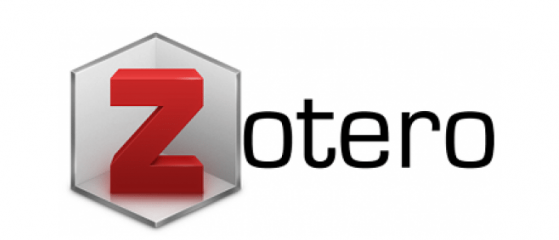ANALISIS PENGARUH SIKAP, NORMA SUBJEKTIF, KONTROL PERILAKU YANG DIRASAKAN DAN PERSEPSI RESIKO TERHADAP NIAT BERKUNJUNG KE OBJEK WISATA LEMBAH HARAU KABUPATEN LIMA PULUH KOTA
Abstract
Penelitian ini bertujuan untuk mengeksplorasi faktor-faktor yang mempengaruhi niat wisatawan berkunjung ke Objek Wisata Lembah Harau, dengan menggunakan teori perilaku terencana sebagai kerangka penelitian utama dan ditambah persepsi resiko. Dalam penelitian ini, masyarakat yang pernah berkunjung ke Objek Wisata Lembah Harau menjadi objek penelitian. Sebanyak 115 kuesioner disebar di internet dengan metode purposive sampling. Semua data diverifikasi dengan statistik deskriptif dan analisis Partial Least Square dengan alat SmartPLS4. Hasil dari penelitian ini adalah sebagai berikut. Pertama, sikap dan kontrol perilaku yang dirasakan signifikan berpengaruh terhadap niat berkunjung ke Objek Wisata Lembah Harau yang terlihat dari nilai p-value lebih kecil dari alfa 1%. Norma Subjektif tidak signifikan secara langsng mempengaruhi niat berkunjung ke Objek Wisata Lembah Harau yang terlihat dari nilai p-value lebih besar dari alfa 1%. Jika melihat hubungan tidak langsung, Persepsi Resiko signifikan secara langsung mempengaruhi sikap dan berpengaruh secara tidak langsung terhadap niat berkunjung ke Objek Wisata Lembah Harau, tetapi tidak signifikan secara langsung terhadap Norma Subjektif dan tidak langsung terhadap Niat berkunjung ke Objek Wisata Lembah Harau.
References
Bae, S. Y., & Chang, P. (2021a). Current Issues in Tourism The effect of coronavirus disease-19 ( COVID-19 ) risk perception on behavioural intention towards ‘ untact ’ tourism in South Korea during the first wave of the pandemic ( March 2020 ). 19. https://doi.org/10.1080/13683500.2020.1798895
Bae, S. Y., & Chang, P. J. (2021b). The effect of coronavirus disease-19 (COVID-19) risk perception on behavioural intention towards ‘untact’ tourism in South Korea during the first wave of the pandemic (March 2020). Current Issues in Tourism, 24(7), 1017–1035. https://doi.org/10.1080/13683500.2020.1798895
Boguszewicz-Kreft, M., Kuczamer-Kłopotowska, S., & Kozłowski, A. (2022). The role and importance of perceived risk in medical tourism. Applying the theory of planned behaviour. PLoS ONE, 17(1 January), 1–27. https://doi.org/10.1371/journal.pone.0262137
Budhiraharja, G., & Thajono, H. K. (n.d.). The Using Of Theory Of Planned Behavior Approach For Analyzing The Influence Of Electronic Word Of Mouth ( Ewom ) Towards Intention To Travel To Yogyakarta.
Daniswara, A. S., Suhud, U., & Corry, Y. (2019). Motivasi, Norma Subyektif dan Sikap dalam Mempengaruhi Niat Berlibur ke Pulau Belitung. Jurnal Perjalanan Wisata, Destinasi, Dan Hospitalitas, 1(1), 34–55.
Erul, E., Woosnam, K. M., Mcintosh, W. A., Erul, E., Woosnam, K. M., & Mcintosh, W. A. (2020). Considering emotional solidarity and the theory of planned behavior in explaining behavioral intentions to support tourism development. Journal of Sustainable Tourism, 0(0), 1–16. https://doi.org/10.1080/09669582.2020.1726935
Gosal, J., Andajani, E., & Rahayu, S. (2020). The Effect of e-WOM on Travel Intention, Travel Decision, City Image, and Attitude to Visit a Tourism City. Advances in Economics, Business and Management Research, 115(Insyma), 261–265. https://doi.org/10.2991/aebmr.k.200127.053
Jiwandono, D., Kusumawati, A., & Sunarti. (2020). Pengaruh Ewom Terhadap Niat Berkunjung Wisatawan Melalui Attitude , Subjective Norms, Dan Perceived. Jurnal Administrasi Bisnis, 1–14.
Lin, C. W., Tsai, Y. X., Chang, Y. S., Ding, Y. J., Liu, J. C., & Lin, Y. S. (2021). Applying the Decomposed Theory of Planned Behavior to Explore the Influencing Factors of NTC App Usage Intention. Journal of Function Spaces, 2021. https://doi.org/10.1155/2021/7045242
Liu, J., Wu, J. S., & Che, T. (2019). Understanding perceived environment quality in affecting tourists’ environmentally responsible behaviours: A broken windows theory perspective. Tourism Management Perspectives, 31(41471467), 236–244. https://doi.org/10.1016/j.tmp.2019.05.007
Pandjaitan, D. R. H. (2018). Perilaku Konsumen Indonesia Memilih Destinasi Wisata Halal.
Panwanitdumrong, K., & Chen, C. (2021). Investigating factors influencing tourists ’ environmentally responsible behavior with extended theory of planned behavior for coastal tourism in Thailand. Marine Pollution Bulletin, 169(January), 112507. https://doi.org/10.1016/j.marpolbul.2021.112507
Renanita, T. (2015). Faktor-Faktor yang Memengaruhi Intensi dan Perilaku Berwisata Masyarakat serta Implikasinya bagi Entrepreneurship Bidang Pariwisata. Jurnal Enterpreneur Dan Enterpreneurship, 4(1–2), 49–58.
Sánchez-cañizares, S. M., Cabeza-ramírez, L. J., Muñoz-, G., Fuentes-garcía, F. J., Cabeza-ramírez, L. J., & Fuentes-garcía, F. J. (2021). Current Issues in Tourism Impact of the perceived risk from Covid-19 on intention to travel Impact of the perceived risk from Covid-19 on intention to travel. https://doi.org/10.1080/13683500.2020.1829571
Shen, K., & Shen, H. (2020). Chinese traditional village residents ’ behavioural intention to support tourism : an extended model of the theory of planned behaviour. https://doi.org/10.1108/TR-11-2019-0451
Wahyuni, S., & Yusuf, A. (2022). Pengaruh Sikap Dan Norma Subjektif Terhadap Minat Berkunjung Wisatawan Pascapandemi Covid-19 (Survei Pada Pengunjung Saung Bali Karawang). Jurnal Ilmiah Wahana Pendidikan, 8(September), 556–567.





















